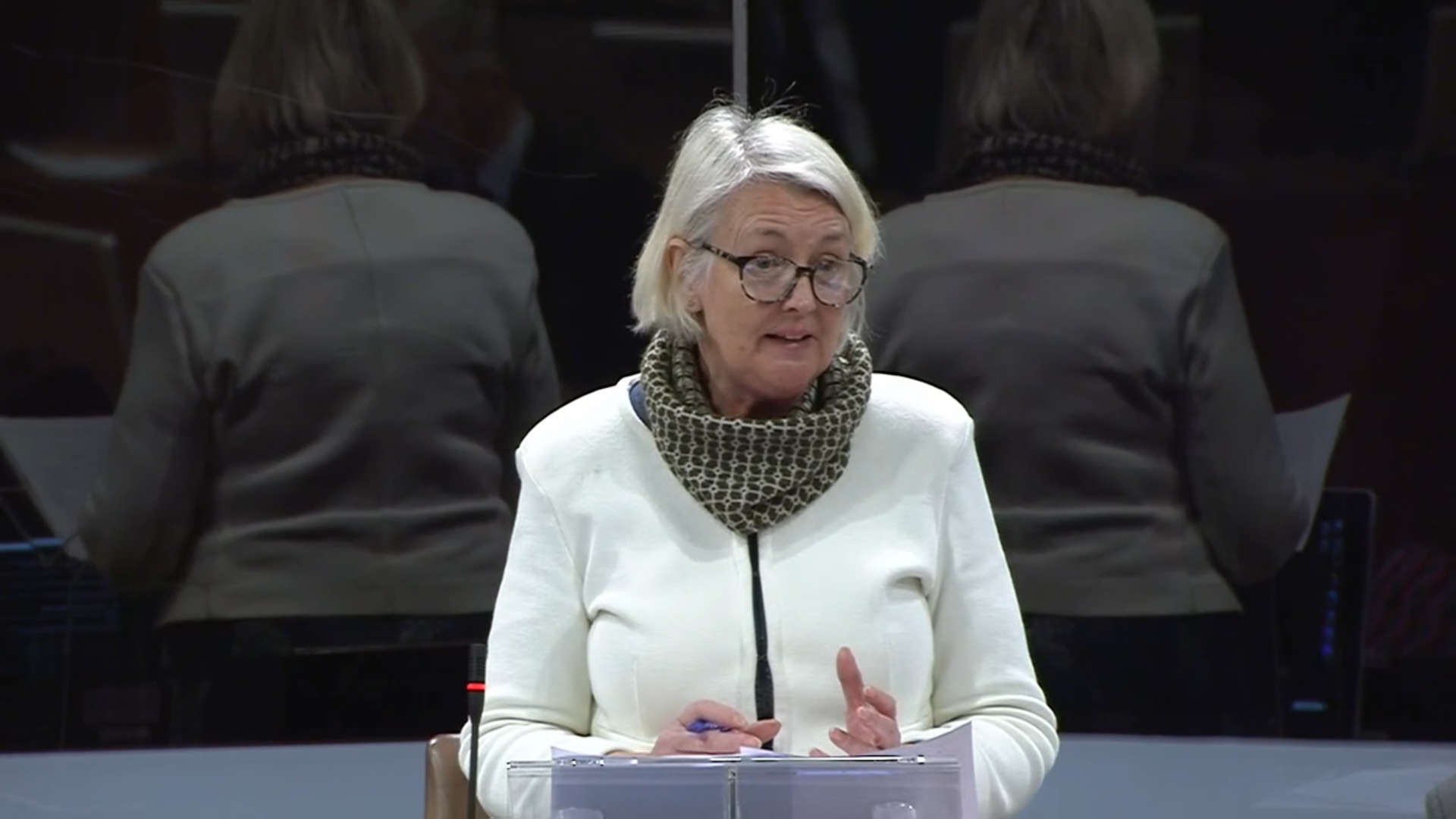
The Senedd has debated calls to enshrine a right to adequate housing into Welsh law.
Arfon MS Siân Gwenllian warned Wales' housing crisis is getting worse, with no signs of improvement, as she set out the case for a bill to incorporate a legal right.
"The picture is bleak," she said. "Homelessness is at its highest level ever in Wales. The number of people living in temporary, unsuitable accommodation has increased by 18% this year – six out of every 1,000 children living in temporary accommodation."
The Plaid Cymru MS told the Senedd the level of social housing has almost halved during the past 40 years, with Welsh housing stock among the oldest in Europe.
She said 70% of private tenants have experienced cold, damp or mold in their homes and rents are rising faster in Wales than in Scotland or England.
'Weak'
Ms Gwenllian warned too many second homes and temporary holiday lets in parts of the country are adding to the problem by shrinking the housing stock available to local people.
The shadow housing secretary said: "The situation has reached such a state of crisis that legislation is needed to drive the change that isn't currently happening."
Ms Gwenllian added: "We in Plaid Cymru are convinced that we must create a right to a home as a crucial component of our nation's legislation."
Outlining her proposal, she told the Senedd that establishing a legal right to housing – rather than a policy aim – would place a requirement on ministers.
She criticised the Welsh Government's "weak" white paper on adequate housing, including fair rents and affordability, warning the policy proposals are insufficient.
'Emergency'
Ms Gwenllian said research shows establishing a legal right to adequate housing would cost about £5 billion over 30 years but lead to economic benefits of £11.5 billion.
Labour's John Griffiths said the Senedd housing committee heard evidence broadly in favour of incorporating a legal right which could play an important role in addressing housing needs.
The committee chair emphasised the detrimental impact that inadequate housing can have on people's health and the need to increase the supply of social housing at pace.
The Conservatives' Mark Isherwood supported calls for legislation from the Back the Bill coalition made up of Tai Pawb, Shelter Cymru and the Chartered Institute of Housing.
He said: "They believe the only way to solve Wales' housing emergency is to fundamentally change how we think about homes, starting with seeing them as a right."
'Transformative'
Plaid Cymru's Mabon ap Gwynfor pointed to Finland and Austria as international examples of the positive impact of implementing a right to adequate housing.
The Dwyfor Meirionydd MS said: "A legal right to adequate housing wouldn't be an overnight fix but it would be a transformative step and set a framework for long-term sustainable housing policies."
Carolyn Thomas, a Labour backbencher who represents North Wales, claimed the crisis was caused by a neo-liberal, profit-driven housing model.
She supported the opposition proposal for a bill to enshrine a right to adequate housing, warning life as a tenant is too often a psychological hardship.
Ms Thomas told the Senedd: "I think that commitment is essential if we are to meet our obligations to our young people in particular."
'Key ambition'
Wales' housing secretary Jayne Bryant said ensuring everyone has a decent, affordable and safe place to call home is a key ambition for the Welsh Government.
She told the Senedd: "The principle...is one we wholeheartedly support," but she stopped short of backing the motion amid concerns about administrative and legal challenges.
Ms Bryant, who is also responsible for Wales' 22 councils, raised the role of the renters' rights bill introduced by her Labour colleagues in Westminster.
She said the Welsh Government will introduce separate legislation, aimed at ending homelessness, by the end of the current Senedd term in 2026.
Following the debate on Wednesday, Senedd members backed the motion 18-0, but the bill is unlikely to proceed without the support of ministers who abstained in the non-binding vote.







 'Renew Bangor': two High Street businesses evicted
'Renew Bangor': two High Street businesses evicted
 Aber Tai’r Meibion 'more resilient' two years on
Aber Tai’r Meibion 'more resilient' two years on
 Holyhead man jailed for assaulting police officers
Holyhead man jailed for assaulting police officers
 Two callouts for Beaumaris lifeboat
Two callouts for Beaumaris lifeboat
 New living seawall at Amlwch Port
New living seawall at Amlwch Port


